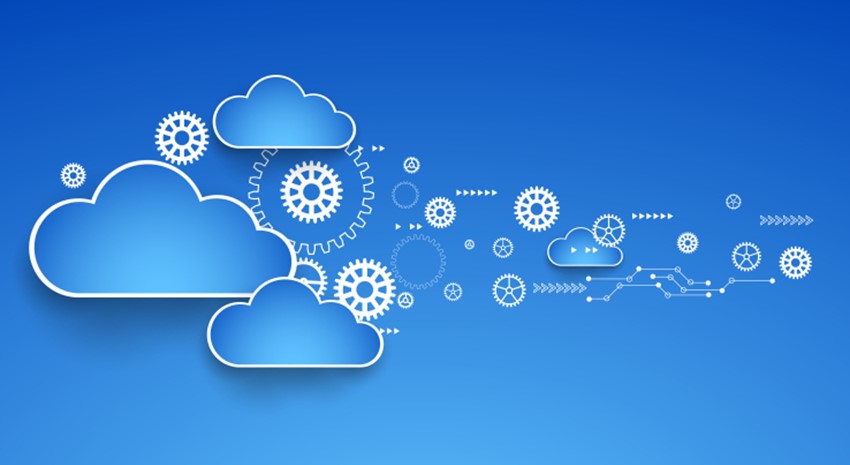Why You Should Choose ERP in the Cloud

According to Aberdeen, more than 60% of businesses with at least one ERP solution still mostly rely on legacy on-premises systems. Why does that matter? The bottom line is that staying on premises is affecting their profitability. While development in ERP might be even between on-premises and cloud versions right now, that will change in the future. And right now, there are simply too many advantages to any cloud-based solution to ignore.
Cloud-based ERP isn’t just about putting your data in the cloud or having your application hosted in the cloud; the strength of ERP in the cloud is the ability to harness the power of the cloud—with solutions built for the cloud—that drives results. Here are 4 reasons why your company should consider moving to ERP in the cloud.
1. Upgrades/Updates
Software changes frequently. Not only are there technology advances that impact productivity, the customer experience, and the ability to drive strategic decisions, but compliance and regulatory issues are constantly changing as well. This means upgrades are inevitable. But most companies put it off due to expense, complexity, and interruption to the business.
Those are good reasons, but they don’t change the fact that, the longer you wait to upgrade, the farther behind you get, and the more your business is impacted, from meeting schedules and delivery promises to making inaccurate decisions—all of which affect profitability. In addition, the longer you wait, the more complex and costly an upgrade becomes. The good news is, most of these issues don’t apply with the cloud:
- SaaS models drastically reduce the complexity of a platform upgrade. Once they are set, updates can simply be pushed out digitally to all licenses, and they’re ready for use right away.
- The cloud model also means that most of the responsibility for keeping systems up to date falls on the shoulders of the vendor. Cloud vendors must meet strenuous standards, which means they have the skills and resources to ensure your upgrades go smoothly.
2. Cost of Ownership/IT Independence
As with upgrades, cloud maintenance responsibilities are on the vendor. That means you can shift your IT resources to projects that help you move your business along. In addition, running a cloud ERP usually takes less time, which means you have more time to spend on your business, rather than IT, and you don’t have to invest in more IT resources, and hardware. In short, you can reduce your dependence on internal IT resources.
3. Functionality and Agility
Companies are becoming more and more decentralized. Nearly half of working Americans say they work from home or another location at least some of the time. The problem with on-premises systems is that they are not designed for how business looks today. They are generally designed for an on-premise work scenario, while cloud solutions are designed with the mobile, global workforce in mind. They link offices, users, and devices in a way that enhances your company’s ability to communicate and collaborate internally.
4. Security
Any company considering a cloud solution will slam the door on it if they don’t feel confident in its ability to protect their data, systems, employees, and customers. In the past, that was the reason most often cited by companies that chose not to go to the cloud—but those days are gone.
Reputable cloud providers will have processes and resources in place to ensure security. When looking at options, be sure the vendor can show they can meet any data residency regulations, regardless of the market. The vendor should also be able to provide guidance and support in meeting regulatory requirements and keep up with them as they change.
Your company’s security and your customers’ security should always be paramount when considering any major platform change. The right vendor should specifically detail how its ERP solution accounts for key issues and updates, as well as exactly how data is accessed and encrypted.
Find the Right Solution…and the Right Partner
It is absolutely critical to find a vendor and partner that understand the cloud and the ERP solution you’re considering. If you’re considering Microsoft Dynamics 365 Business Central, you’re on the right track. Whether you’re on an on-premise version of Dynamics or are using another ERP solution, ArcherPoint’s upgrade team has the combined years of experience and knowledge that make us unparalleled upgrade experts. We provide a dedicated team, a proven methodology, a deep understanding of the specialized tools and processes required for a seamless upgrade, and commitment to you from the beginning through continuing support and future upgrades. Our goal is to make upgrading a non-event.
At ArcherPoint, we take pride in our excellent reputation for smooth execution of upgrades, regardless of industry or complexity. Talk to ArcherPoint’s Upgrade Team about migrating or upgrading to Microsoft Dynamics 365 Business Central.
If you’re already using Navision or Dynamics NAV, you can get a free quote that will allow you to budget for your next upgrade.
